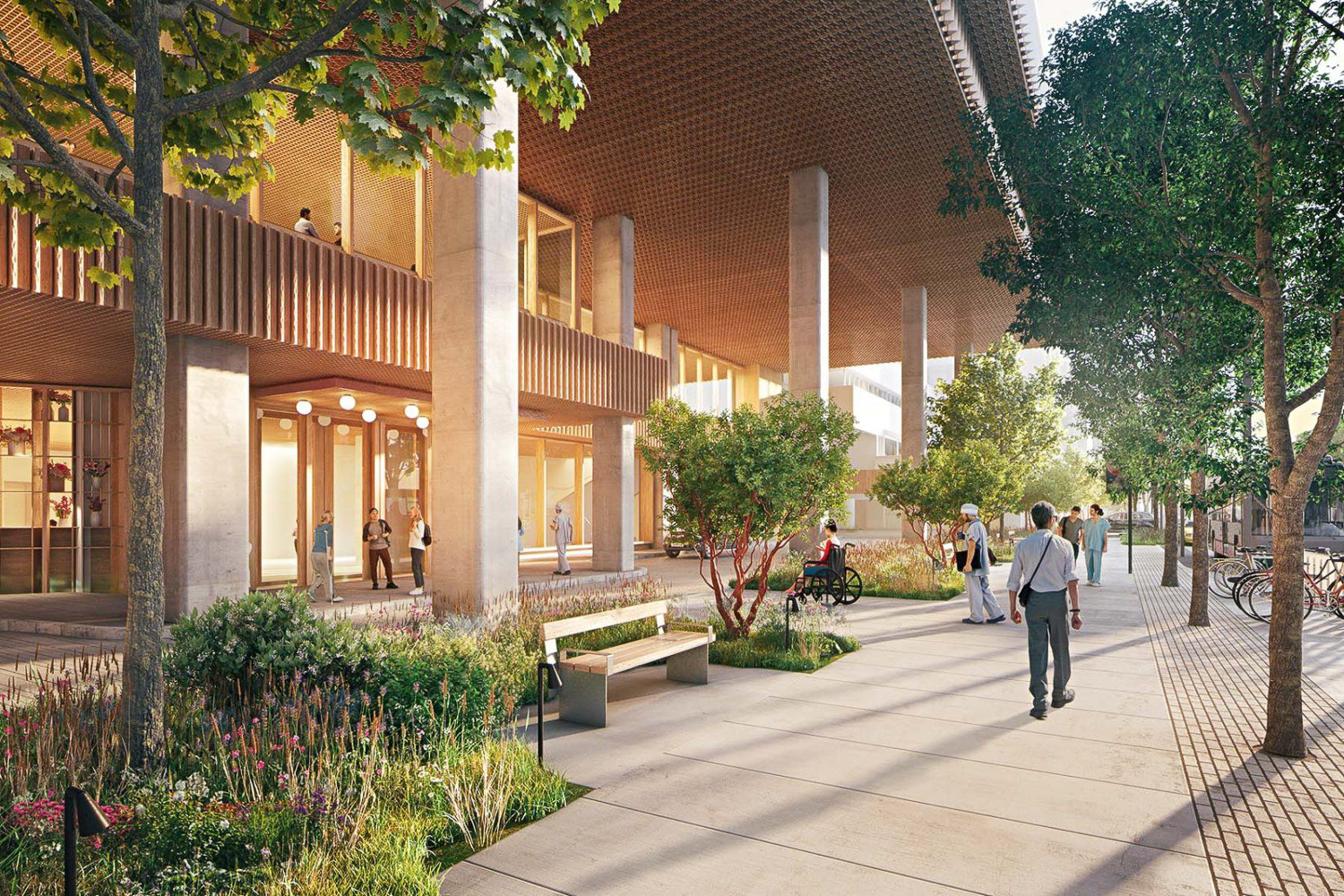Construction broke ground earlier this week on the US$4.3 billion expansion project at UCSF Parnassus Heights Hospital. Located in San Francisco, the project will stand 15-stories tall and will offer hundreds of new patient’s beds and care units. Although foundation work begun this week, the groundbreaking ceremony was held two months ago, in April.
Project Scope and Name
The 880,000 square-foot facility has been named UCSF Health Helen Diller Hospital. This is because a large amount of funding came from a 500-million donation from the Helen Diller Foundation. Following approval from UC Regents in 2022 for the project, demolition of the pre-existing structure, the Langley Porter Psychiatric Hospital, started last year.
Also Read: Harris Health System is set to break ground on a $1B new hospital in northeast Houston
UCSF hospital expansion project team
The UCSF Health Helen Diller Hospital has been designed by Herzog & de Meuron, the lead architect. HDR has been named architect of record. A joint venture consisting of Webcor, Herrero Builders and Appleton oversee the project. Further, Boldt Company is the project contractor.

Project Design
The terracotta-clad tower will come together like an asymmetrical wedding cake, with a fluted-panel base at the bottom, a four-story middle of curtain-wall glass, and a top layer of stepped terraces with seven floors of patient care units. In addition, from the top, patients and employees will be able to see the other major project by Herzog & de Meuron, the twisting copper-clad de Young Museum in Golden Gate Park.
Also Read: Expansion project on the largest hospital in Miami begins
Standing at 294-feet once completed, the structure will contribute around a million square feet of usable space. This will add 324 new patient beds. The hospital will increase the overall campus’s capacity up to 682 patient beds. Moreover, there will be 40 operating rooms, and 70 emergency beds. Access to MRI’s, scanners and other imaging equipment for complex cases are a major upgrade to the hospital. These will help with cases such as brain tumours and transplants.
The new facilities will “incorporate the latest technologies in diagnostics, robotics and surgical procedures into complex specialty care. This includes neurosurgery, cardiology, transplant and emergency medicine,” stated a UCSF press release.
Completion Date
The hospital is slated to be opened in 2030. UCSF stated that 30% of the construction workers will be locally hired and has pledged to have 1,000 union jobs created for the project. Additionally, new job training programs will be incorporated during construction. US$20 million will be invested by UCSF for public transit improvements. US$11 million will be used for the San Francisco Municipal Transportation Authority to augment the N Judah line.
Also Read: Inova Franconia-Springfield Hospital to be build by Inova in Virginia
“The UCSF Health Helen Diller Hospital is one of the most advanced hospitals being built in the country. It will expand our ability to provide exceptional care for San Francisco and serve patients from around the world with complex health conditions. This is a huge investment that will bring people to the city and solidify San Francisco’s reputation as a destination for world-class care,” said Suresh Gunasekaran, president and chief executive officer of UCSF Health.

“This is a pivotal moment for UCSF as we break ground on a bold new vision for our historic Parnassus campus. To remain a leader in the fields of biomedical research, health sciences education and care, we are building world-class facilities to match the caliber of the people who will work in them. The UCSF Health Helen Diller Hospital will offer state-of-the-art facilities that will bring the latest therapies to our patients. This is where the future of health care is going to be led,” said UCSF Chancellor Sam Hawgood, MBBS.

